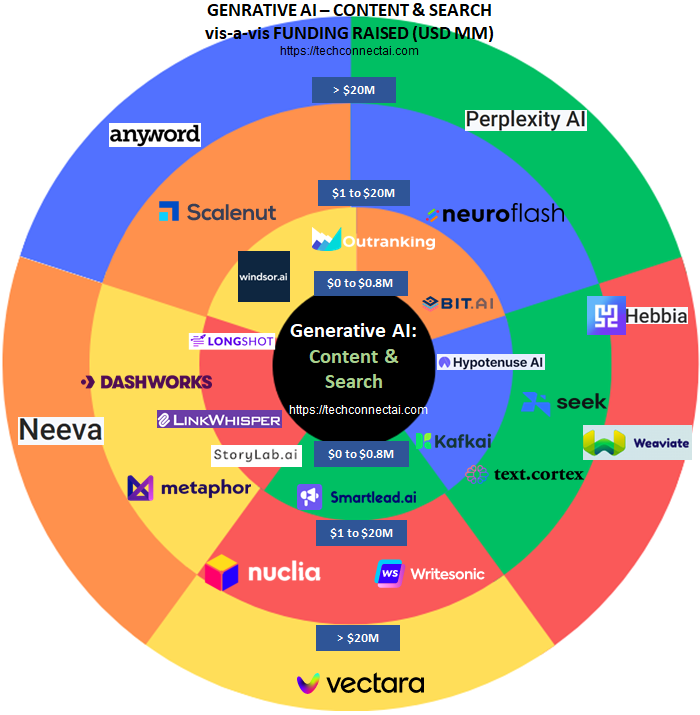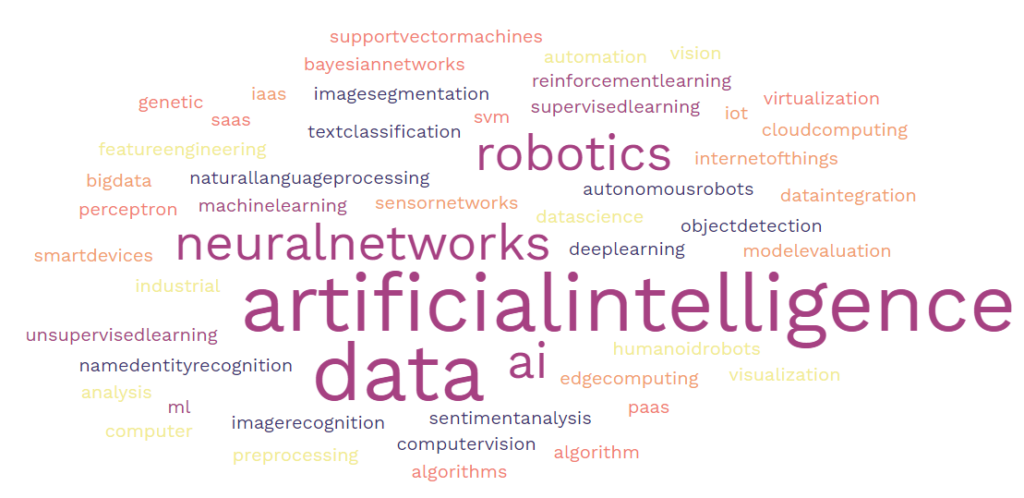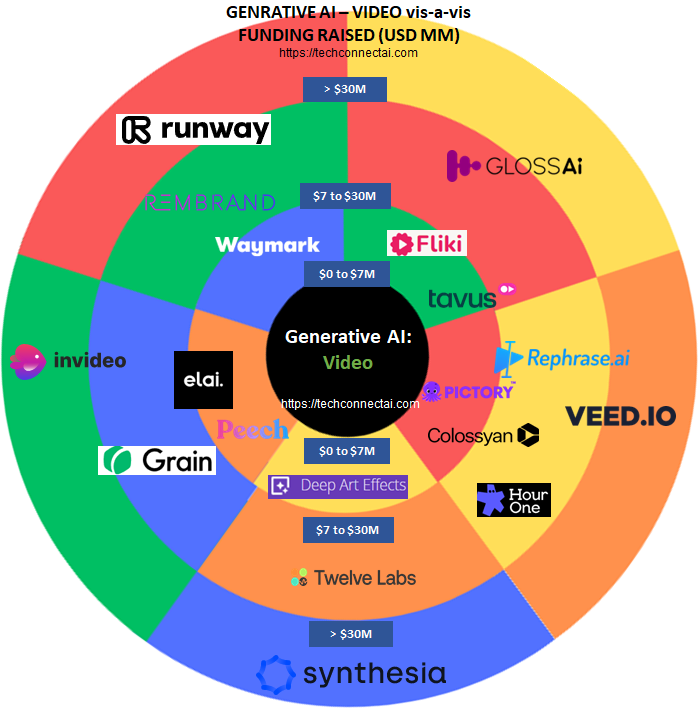Table of Contents
ToggleIntroduction
In today’s fast-paced digital landscape, traditional search engines are evolving into intelligent systems, thanks to artificial intelligence (AI) integration. The best AI search engine leverage machine learning algorithms and natural language processing to provide more relevant and personalized search results. As businesses and individuals seek to optimize their information retrieval processes, the decision of choosing the right AI search engine becomes crucial. Let’s explore the key factors that should influence your choice.
Best AI Search Engines, also covering Content generations

Are you interested in reading more about our analysis of the Top 10 AI Text generators? Read our article 10 Best AI Text Generator You Need to Try Today! Including Top Chat and Translation tools .
Are you interested in reading more about our analysis of the Top 10 Video generators? Read our article 10 Best AI Video Generators: Transforming Content Creation in the Digital Age
Weaviate builds, maintains, and commercializes the open-source vector database Weaviate. It allows you to store data objects and vector embeddings from your favorite ML-models, and scale seamlessly into billions of data objects. Beyond search, Weaviate’s next-gen vector database can power a wide range of innovative apps. With vector search, you can perform lighting fast pure vector similarity search over raw vectors or data objects. With Hybrid search, you can combine keyword based search with vector search techniques.
Hebbia’s neural search lets you execute research 10X faster and 10X more accurately. Hebbia can index anything such as scanned PDFs, PowerPoints, spreadsheets, transcripts and instantly spin up an expert search engine that pinpoints answers to your most complex questions. Hebbia helps you make informed decisions with conviction. According to Hebbia, Google has indexed only 4% of the world’s information, so they are focused on private data, the other 96%. Their mission to transform how humans surface and acquire knowledge.
Perplexity AI is an AI-chat-based conversational search engine that delivers answers to questions using language models. Their long-term mission is to become the best platform for answers and information, serving as the go-to source for people seeking quick, accurate answers tailored to their asks. They envision Perplexity AI as a platform beyond a traditional search engine, evolving into a comprehensive knowledge hub where anyone can explore and learn effortlessly.
Nuclia is an API designed to help developers build AI-powered search engines. Nuclia API lets you get 100% out-of-the-box AI search and generative answers from documents, texts, and videos while keeping your data privacy and avoiding hallucinations. Nuclia automatically indexes your unstructured data from any internal and external source, providing optimized search results and generative answers. It can handle video and audio transcription, image content extraction, and document parsing.
Metaphor is a search and discovery tool built for data scientists, data engineers, and AI practitioners. Its called the social platform for data! Metaphor is a powerful tool for Data Teams, but more importantly is a highly effective yet simple tool for Consumers of data across the whole company.
Are you interested in reading more about our analysis of the Top 10 AI Image generators? Read our article 10 Best AI Image Generators, From Pixels to Masterpieces! .
Are you interested in reading more about our analysis of the best AI 3D model generator? Read our article 7 Best AI 3D Model Generator leading the way and creating wonders!
Factors to Compare Best AI Search Engine
User Interface and Experience
The user interface (UI) of an AI search engine plays a pivotal role in its usability. A clean, intuitive, and well-organized interface ensures that users can efficiently navigate and access information. Look for features such as voice search, predictive suggestions, and customizable settings to tailor the search engine to your preferences.
Search Accuracy and Relevance
At the core of any search engine lies its ability to provide accurate and relevant results. AI search engines utilize machine learning algorithms to understand user intent and context, ensuring that the displayed results match the user’s needs. Evaluate the engine’s accuracy by testing complex queries and analyzing the quality of results.
Natural Language Processing (NLP) Capabilities
An AI search engine’s NLP capabilities determine its comprehension of human language nuances. The engine should be proficient in understanding synonyms, colloquialisms, and context. This feature enhances the search experience by producing results that align with the user’s language style.
Personalization and Recommendations
Personalization is a hallmark of AI search engines. They analyze user behavior and preferences to deliver tailored recommendations. Whether it’s product suggestions, content topics, or news articles, a good AI search engine should adapt and improve its suggestions over time.
Speed and Performance
In the digital age, speed matters. Users expect instant results, and a sluggish search engine can lead to frustration. AI-powered engines should provide rapid response times, quick loading of results, and smooth navigation through search pages.
Data Privacy and Security
With the increasing reliance on AI for search, data privacy and security are paramount. The chosen search engine should have robust security measures in place to protect user data and ensure compliance with relevant privacy regulations.
Knowledge Graph Integration
Knowledge graphs enhance search results by providing structured information related to user queries. AI search engines with integrated knowledge graphs can offer concise summaries, definitions, and visualizations, enriching the search experience.
Multilingual and Cross-Platform Support
The best AI search engines transcend language barriers and platforms. Look for engines that offer multilingual support and can seamlessly function across various devices and operating systems.
Integration with Third-Party Apps
The ability to integrate with third-party applications extends the functionality of AI search engines. This feature enables users to directly access information from other tools, enhancing workflow efficiency.
Training and Customization
AI search engines that allow training and customization empower users to fine-tune the engine’s behavior. This feature is particularly useful for businesses with specialized needs, as it enables the engine to adapt to industry-specific terminology and requirements.
Vendor Reputation and Support
Choosing a reputable vendor is crucial for a smooth experience. Research the vendor’s track record, user reviews, and customer support responsiveness to ensure a reliable partnership.
Pricing and Cost Structure
AI search engines often come with various pricing models. Compare the cost structures, subscription plans, and scalability options to find the one that aligns with your budget and expected usage.
Integration with Existing Systems
For businesses, seamless integration with existing systems is vital. Ensure that the chosen AI search engine can easily integrate with your current software stack without major disruptions.
Training and Learning Curve
Consider the learning curve associated with adopting a new AI search engine. Look for engines that provide comprehensive documentation, tutorials, and training resources to expedite the onboarding process.
Industry-Specific Features
Different industries have unique requirements. Some AI search engines offer industry-specific features, such as medical terminology recognition or legal document search enhancements. Evaluate whether the engine caters to your industry’s demands.
Long-Term Viability and Roadmap
The technology landscape evolves rapidly. Opt for an AI search engine with a clear roadmap and commitment to ongoing innovation. This ensures that your chosen engine remains relevant and up-to-date.
Cloud vs. On-Premises Deployment
Consider whether you prefer a cloud-based or on-premises deployment model. Cloud solutions offer scalability and accessibility, while on-premises solutions provide greater control over data and security.
Analytics and Insights
AI search engines can offer valuable insights into user behavior and search patterns. Analytical features such as search trend analysis and user engagement metrics can aid in optimizing your content strategy.
Compatibility with Big Data
In data-rich environments, compatibility with big data frameworks is essential. Ensure that the AI search engine can handle and process vast amounts of data efficiently.
Future-Proofing Features
Anticipate future needs when evaluating AI search engines. Look for features such as integration with emerging technologies, compatibility with upcoming data formats, and adaptability to changing search trends.
Natural Language Generation (NLG) Integration
NLG integration takes AI search engines a step further by not only retrieving information but also generating human-like text based on the retrieved data. This can be beneficial for creating reports, summaries, and content.
Accessibility and Inclusivity
An often overlooked factor is accessibility. Choose an AI search engine that adheres to accessibility standards, ensuring that all users, including those with disabilities, can benefit from its features.
Collaborative Features
For team environments, collaborative features are valuable. These could include shared bookmarks, collaborative search history, and real-time document collaboration.
User Feedback and Continuous Improvement
User feedback mechanisms indicate a vendor’s commitment to improvement. Seek engines that actively gather user input and implement feature enhancements based on suggestions.
Are you interested in reading more about our analysis of the Best AI Productivity tools? Read our article 7 Best AI Productivity Tools to supercharge your day!
Are you interested in reading more about our analysis of the Best AI code generator? Read our article 7 Best AI Code generator creating a Coding Revolution!
Conclusion
Selecting the best AI search engine requires careful consideration of various factors. By assessing user interface, search accuracy, personalization, security, and other key aspects, you can make an informed decision that aligns with your needs. Remember that the digital landscape is ever-evolving, and an AI search engine with future-proofing features can ensure that your investment remains valuable in the years to come.
Are you interested in reading more about our analysis of the best AI Audio generator? Read our article 10 Best AI Audio Generator Tools to Revolutionize Content Creation!
FAQs
Q) How do AI search engines differ from traditional search engines?
AI search engines utilize machine learning and natural language processing to understand user intent and context, delivering more accurate and personalized search results compared to traditional engines.
Q) Can AI search engines understand multiple languages?
Yes, many AI search engines offer multilingual support and can comprehend various languages, enhancing their global usability.
Q) Are AI search engines suitable for small businesses?
Absolutely. AI search engines can benefit businesses of all sizes by improving search accuracy, enhancing user experience, and providing valuable insights.
Q) How do I ensure the security of my data when using AI search engines?
Choose AI search engines from reputable vendors with robust security measures and compliance with data protection regulations.
Q) Can AI search engines be integrated with e-commerce platforms?
Yes, many AI search engines offer integration options with e-commerce platforms, enabling personalized product recommendations and improved user engagement.
Q) What role does AI play in voice search?
AI powers voice search by converting spoken language into text, understanding intent, and retrieving relevant information from vast databases.




